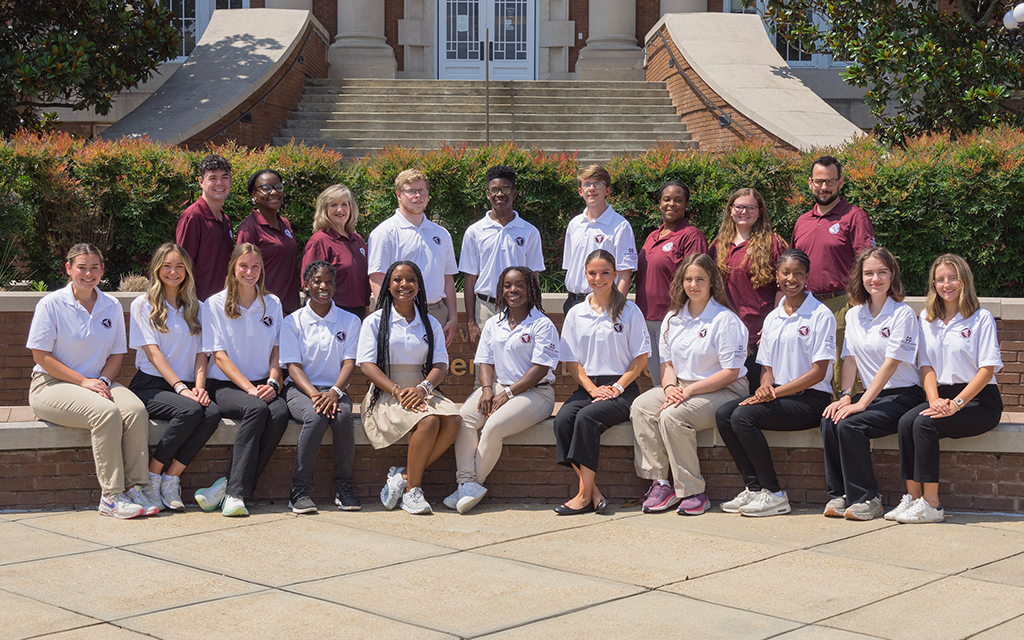Petal High School senior Jonyla Garrett sees anesthesiology or operating room technology in her future. She can credit that clarity to Mississippi State University—and her television viewing habits.
“I first got interested in medicine as a kid watching ‘Doc McStuffins’ and later ‘Grey’s Anatomy,’” she said.
This summer, Garrett joined 13 other rising seniors at Mississippi State University for the Rural Medical Science Scholars Program. Designed to help bridge the growing rural health care gap, the program selects participants based on strong academic performance and interest in health or science careers in the state.
If Garrett does go into medical school and chooses to practice in the Magnolia State, she will address a very real need. Statistically, the picture of access to medical care in rural areas is bleak. The Mississippi State Department of Health reports that financial pressures could close more than half of the state’s rural hospitals.
Additionally, the Office of Mississippi Physician Workforce reports that Mississippi has 67.4 primary care physicians per 100,000 people—well below the national average of 94.7. More than half of the state’s residents live in rural areas, and 80 of Mississippi’s 82 counties are considered medically underserved.
Creating Solutions
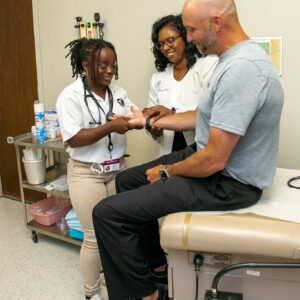
MSU officials first noted the problems created by limited access to health care in the 1990s and began looking for solutions. The RMSS program was launched through MSU Extension in 1998, as a way to directly address the problem and invest in Mississippi’s future.
The two-and-a-half-week program gives participants a chance to earn college credit in a health-related course. It also exposes them to different careers in the health care industry and helps the students build relationships with peers who might one day be their classmates as undergraduates or in medical school.
The ultimate goal of RMSS is that the participants, who have shown themselves to be academically talented and service minded, will choose a career in a medical field and stay in Mississippi.
Cade Mairidith, now a Tupelo High School senior, said he considers the RMSS program a step toward his goal of a career in medicine—likely as a physician or a physician assistant.
“Growing up in a rural area in Mississippi, I have experienced first-hand the health care disparities that many rural residents deal with. Over time, I began to understand the need for not only more health care professionals in rural areas but also health care professionals who understand what it’s like to experience those disparities and can relate to those who live there.”
~ Cade Mairidith
“I began to consider those after discovering what careers lined up with my aptitudes in math and science,” Mairidith said, noting that his guidance counselor introduced him to the RMSS program as a way to explore possible career paths.
“Growing up in a rural area in Mississippi, I have experienced first-hand the health care disparities that many rural residents deal with,” he said. “Over time, I began to understand the need for not only more health care professionals in rural areas, but also health care professionals who understand what it’s like to experience those disparities and can relate to those who live there.
“I have deepened my interest in not only becoming a medical professional myself, but being one in a community that has been set back by a lack of medical professionals and resources,” Mairidith continued.
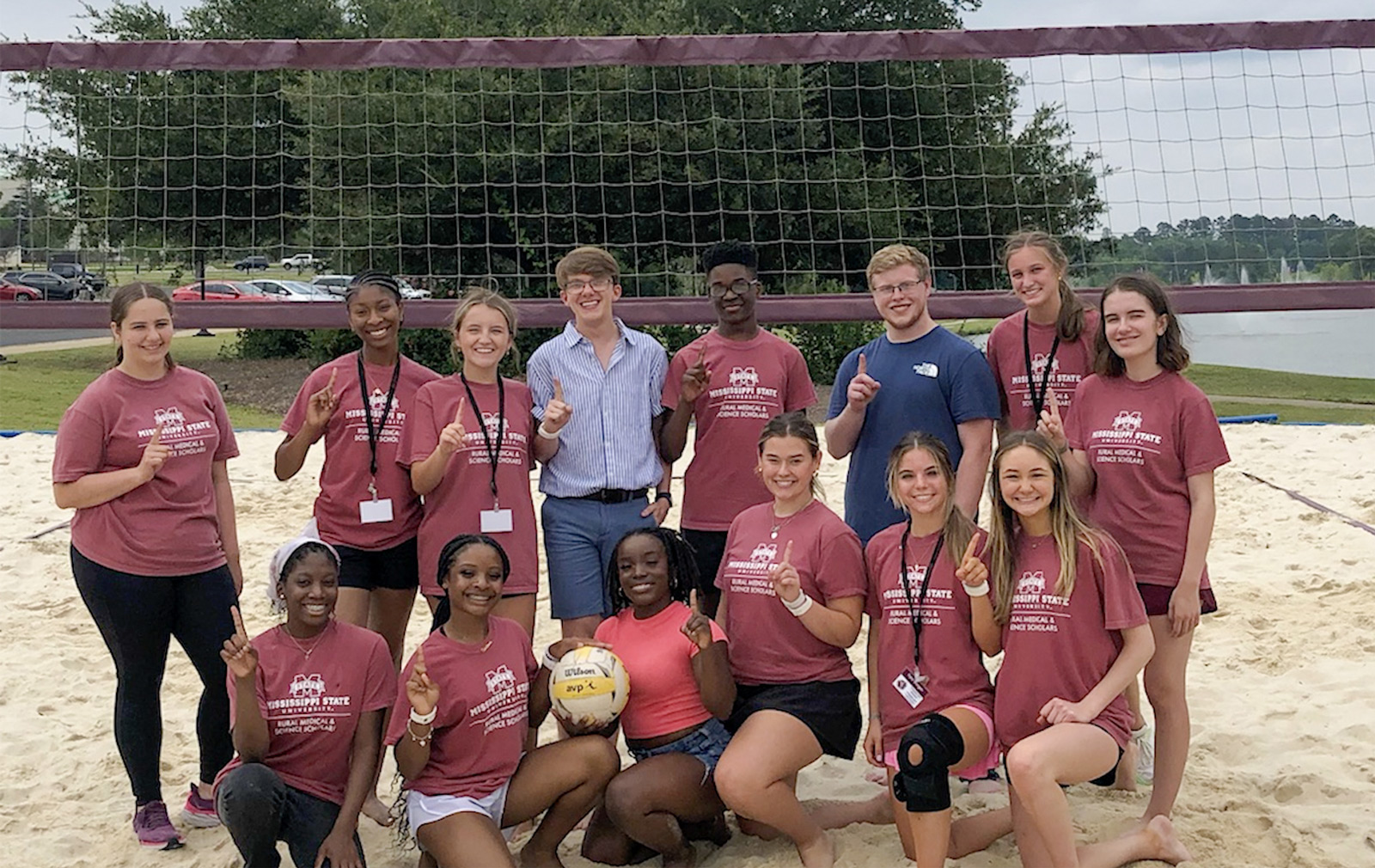
The two-and-a-half week Rural Medical and Science Scholars program has a busy schedule of educational experiences but there is also time for recreation including a volleyball game at MSU’s Sanderson Center.
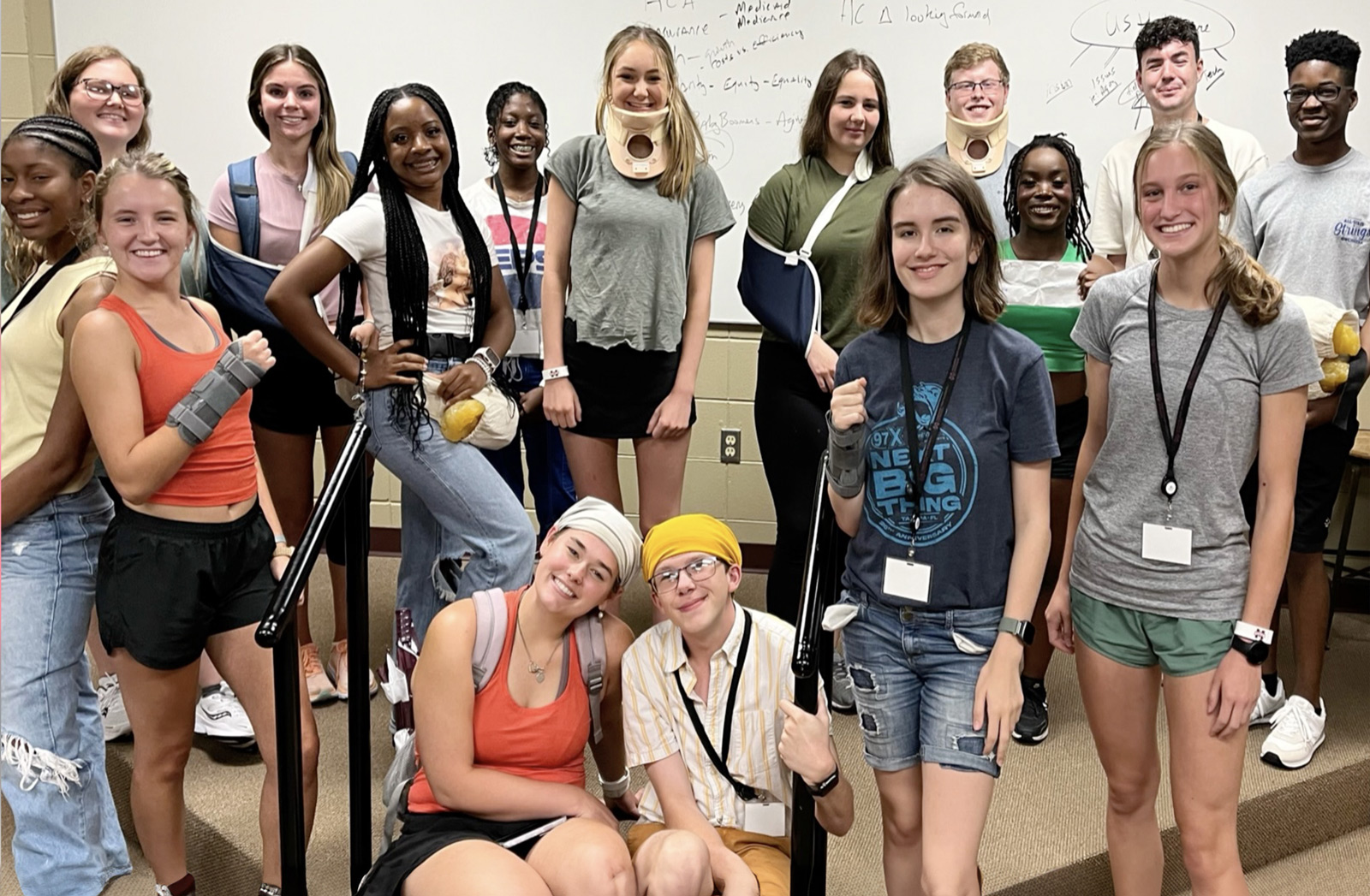
Each year, RMSS students participate in a simulation during which each is assigned an injury or illness and must wear the associated medical devices for 24 hours. The goal is to increase empathy and awareness of what patients experience.
Seeing Results
It may take some time to erase the disparity in access to health care in the state, but the MSU Extension RMSS program is annually narrowing that gap.
Since its inception, 494 students have participated. Of those, 58 attended medical school, with 30 practicing in primary care in the state, while others are still in medical or dental school.
Maggie Jo Everett, an MSU senior from New Albany majoring in biochemistry, is making plans to join those ranks as soon as possible.
An RMSS alum, Everett was given early assurance into the University of Mississippi Medical Center School of Medicine with her acceptance into the Mississippi Rural Physicians Scholarship Program, which targets rural college students with interests in medicine. In return for significant aid in defraying the cost of medical school, participants contract to work in a medical field in a rural part of the state for the same number of years they received the scholarship.
“I’m really interested in doing OB-GYN because it is primary care and it addresses something that is needed, especially in my hometown,” Everett said. “I also like this specialty because it would allow me to be in the operating room.”
~ Maggie Jo Everett
“There is something to be said about the way we are in Mississippi and the community aspect we have here. The goal is for me to raise a family in a small town and for them to be able to stay here, too.”
Staying in the state and practicing medicine was an easy choice for Everett who said she hopes to change the narrative of health care in Mississippi.
“I love my hometown and the community aspect of having my church, family and grandparents and cousins around,” Everett said. “My exposure to the problems of health care in Mississippi, even in high school through the Rural Medical Science Scholars program, made me passionate about making our state better.”
While in high school, Everett completed summer programs at Johns Hopkins University and the University of North Carolina-Chapel Hill, experiencing life and medicine in large cities.
“There is something to be said about the way we are in Mississippi and the community aspect we have here,” she said. “The goal is for me to raise a family in a small town and for them to be able to stay here, too.”
Reaching Rural Communities
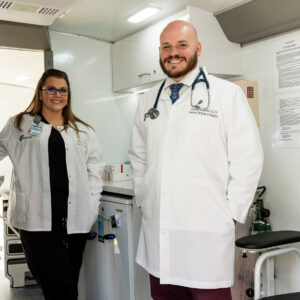
Dr. Caleb Zumbro is the only full-time clinic physician in Franklin County. Although he did not find out about the RMSS program until he was in college, he served from 2011-2013 as a counselor for RMSS students.
“Probably a dozen or more of my scholars are currently in medical school, dental school or in nursing. Another scholar just started the same residency program that I graduated from,” Zumbro said. “It’s been neat seeing those high school students go through college and now pick their careers.”
Zumbro earned a degree in chemical engineering from MSU in 2012, but experiences in college—including his work with RMSS—changed the direction of his career. He graduated from UMMC in 2018 and, after a dual residency in pediatrics and internal medicine, he moved back home. He now runs a clinic in Bude and does rounds at the hospital in Meadville.
He is part of a trend identified by the American Association of Medical Colleges that shows more than 75% of residents who received both undergraduate and graduate medical education in Mississippi remain in the state to practice. This trend has tripled the Mississippi medical student graduation rate since 2005 and is the fourth best in the nation.
“I wanted something that allowed me to impact others’ lives more directly and be a benefit to my community,” he said. “I want my hometown and other small places around Mississippi to thrive, because each place has its own culture and identity that makes it a community. Hopefully by improving the health of the citizens of Franklin County, we can keep that community going strong for generations to come.”
By Bonnie Coblentz, Photos by Michaela Parker and Kevin Hudson


